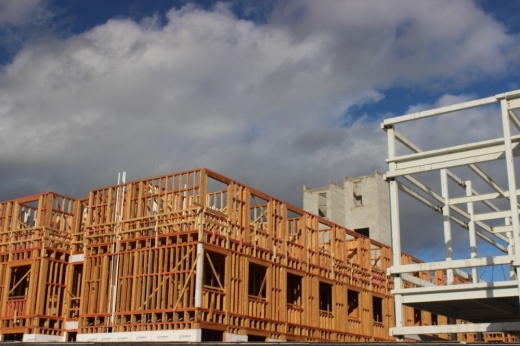Proposition A, the affordable housing measure, passed with nearly 71% support citywide in November's general election. The bond follows other housing packages approved by voters in 2006, 2013 and 2018, as most of those dollars have already been used up.
The city stated the bond would eventually mean an annual $40-$50 property tax bill hike for the owner of a median-value home—although that full increase is not expected in 2023. Community Impact previously reported on the anticipated taxpayer effects from Austin's housing bond as well as measures from Austin ISD and Austin Community College that were on the November ballot.
Spending plan
The newly approved funds will be used in four main areas: land purchases for future housing projects, funding support for both rental and ownership projects, and repairs for existing residences.
Those are the same buckets that 2018 funds were divided into when that bond was put before voters. However, the 2018 ballot language outlined total spending in each area and limited the potential for transfers between them. This time, all $350 million from the 2022 measure will be available for Austin to spend between each of those programs as needed.
“One of the challenges that we had early on with the 2018 bond was we had a large demand for rental and a smaller demand for ownership. So we tried to borrow from one, but then balancing the books at the end of the day just got a little hairy," Housing and Community Development Officer James May told the city's bond oversight commission Jan. 18. "This ballot language gives us a little bit more flexibility to say where the need is and to assign it as necessary—which we will be bringing to council hopefully within the next couple of months.”
Moving forward, May said he expects the city can move to acquire a maximum of three to four new properties each year, based on current staffing availability and market conditions. Bond funding for both rental and ownership housing projects is distributed on a quarterly basis after review by city staff, a timeline May said he expects will continue. And repair programs will largely be managed by local nonprofits backed by bond dollars and other city funding sources.
While the majority of previous housing bond dollars have been spent, May also noted that some support could also come from previously funded projects that came in under cost or ended up needing less city support.
“We don’t want our developers to see our affordable housing investments as a piggy bank. If a cash event is occurring, then we would like to be able to repay some of that loan so that we can reinvest it in other affordable housing elsewhere," he said.
Several city departments are planning to meet in February to lay out a more detailed implementation for the 2022 bond, May said, and City Council could sign off on that plan this spring.
Rental and ownership projects would then receive the first awards backed by the new bond later on; a public solicitation for a new land purchase could open in the summer; and new home repair contracts could be issued in the fall.





